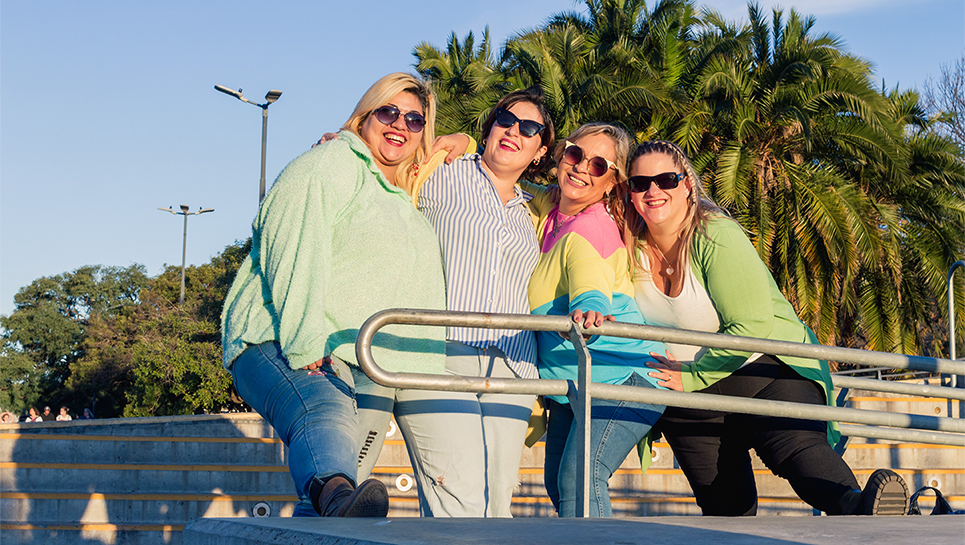Body Liberation Fits in Public Health, Reason #5

Working in a more weight-inclusive way aligns well with basic public health principles and goals. In many cases, a body liberation approach enables us to be truer to the values that underlie our work. In this series of posts, we will examine ways we can improve our public health work by becoming more weight-inclusive.
Reason #5: We Value Representation, Lived Experience and Community Leadership
Little thought is given to including the perspective of people in larger bodies when working on initiatives to improve the health of larger people, or anyone, for that matter. In so many aspects of public health, we work to ensure representation of a variety of lived experiences and perspectives, especially when our work is focusing on a particular community. We value the approaches to health and well-being from various cultures and groups. There are many assumptions that are likely sources of this either intentional or unintentional exclusion of larger people. For example, the stereotype that higher weight people are inherently unhealthy, so how could they inform a health initiative? Or, the belief that people can just change their body size and avoid negative health outcomes, if they want. Or, that being fat is shameful, so better ignored. “Nothing about us without us” applies here as much as it does for any other group.

Marquisele Mercedes (Mercedes, 2020), in her article, “Expertise is Not Social Justice: Reflecting on the ‘Ob*sity Epidemic’” sums it up nicely:
Social justice is about dismantling the structures that create disparate social experiences. To do that effectively, you must work directly with people whose lives are marked by the issue that you are, more often than not, only connected to through grants, papers, and protocols. Ask those people about their hopes, their visions for the future. Does your work, as is, help get them there?
By intentionally including people in larger bodies in our work, we can begin to play a part in reducing weight stigma and improve our effectiveness in improving individual and community health. Body size intersects so intimately with other oppressions, so paying attention to this in our work can be a leverage point for impacting other inequities.
Mercedes, M. (2020, September 7). Expertise is Not Social Justice: Reflecting on the “Ob*sity Epidemic.” Medium.
Cautions
As with any marginalized group, not all people in larger bodies will be comfortable representing the perspective of fat people. Proceed with caution. Reach out to people you know are involved in body liberation or fat activism in some way, and/or recruit for people with lived experience, as you would with any other marginalized group. And, working with just smaller fat people is not enough. True representation must include very large people as well.
CURIOUS TO LEARN MORE?
Ready to dig in to learning more about working with this community of people in larger bodies?! Check out the work of the following people:
Marquisele Mercedes
“I am a fat liberationist writer, creator, educator, and doctoral student from the Bronx, New York. As a Presidential Fellow at the Brown University School of Public Health, I am broadly interested in how racism, anti-Blackness, and fatphobia have shaped health care, research, promotion, and training. I am currently a Junior Fellow with the Centre for Fat Liberation and Scholarship, an independent, non-profit research organization committed to fat community, cutting-edge scholarship, and improving the lives of fat people everywhere.”
Monica Kriete (aka Fatty, MPH)
“I’m a fat liberation activist with a public health degree — and no, that’s not a contradiction! I help clinicians and researchers understand the flaws of weight-centric health systems and imagine fat-positive healthcare and health policy.”
Caleb Luna
“Caleb Luna is an artist, public scholar and theorist of the body. Texas born and raised, they have lived as a visitor to Huichin, Ohlone land (Bay Area, CA) since 2016, where they earned their Ph.D. from the University of California, Berkeley. They are an award-winning educator and scholar, the bestselling author of “Revenge Body” (Nomadic Press, 2022) and co-host of the podcast “Unsolicited: Fatties Talk Back.” Publishing, performing and curating across genre and medium, Caleb’s cultural work reads, responds to and challenges tropes and discourses regarding race, size, sexuality and disability in media and culture. Ultimately, they are interested in engaging embodied difference as a generative resource toward fatter understandings of collective freedom. Dr. Luna is currently a University of California President’s and Andrew W. Mellon Foundation Postdoctoral Fellow at the University of California, Santa Barbara.”
Shilo George
“Shilo George, MS (she/they) a Southern Cheyenne-Arapaho and Irish/Scottish international speaker and owner of Łush Kumtux Tumtum Consulting, which means “a great awakening of the heart and spirit” in the Chinuk Wawa trade language. Her consulting work covers both trauma informed practices and how those practices align with and support anti-racist and anti-oppression work within organizations and communities. They are a community educator with more than twenty years of experience as a social worker with values rooted in Native cultural and spiritual practices. Shilo praises her communities as the sources of her inspiration, perseverance, and drive. . . . Addressing weight bias and stigma within organizations is also foundational to my practice. With a specialization in the medical services industry, I help my clients cultivate a culture of diversity and equity to bring awareness to the harmful effects of weight stigma. Together, we can increase the availability of high quality, weight inclusive services for people of size.”